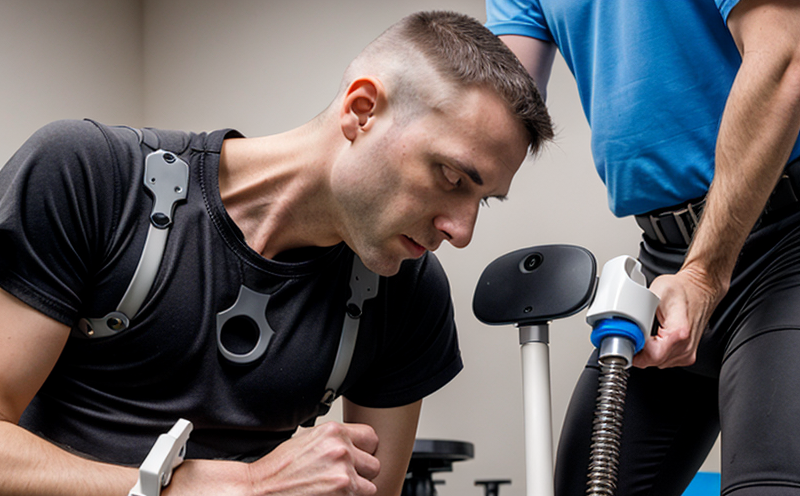ASTM F2077 Spinal Implant Torsional Fatigue Testing Validation Method Development Test
The ASTM F2077 method is a cornerstone in the validation process of spinal implants, particularly those used for interbody fusion. This torsional fatigue testing procedure ensures that devices withstand cyclic loading without failure, which is critical for patient safety and successful surgical outcomes.
The test involves subjecting specimens to repetitive torque cycles until either structural failure or predefined fatigue life is reached. The primary goal is to evaluate the fatigue resistance of spinal implants under conditions similar to those encountered during normal use. This method is essential for ensuring that medical devices meet rigorous safety and efficacy standards, thereby protecting patients from potential failures post-surgery.
The process begins with careful specimen preparation, which includes cleaning, sterilization, and orientation according to specific ASTM F2077 requirements. The testing apparatus used in this procedure is designed to mimic the biomechanics of spinal motion while applying controlled torque loads. Specimens are then subjected to a series of cycles that simulate long-term use conditions.
The data collected during these tests provides critical insights into the durability and performance of spinal implants, allowing manufacturers and regulatory bodies to assess compliance with relevant standards. This information is vital for obtaining clearance from organizations like the FDA or CE marking, ensuring that only reliable products reach market.
Our lab adheres strictly to ASTM F2077 guidelines throughout this process, ensuring accurate and consistent results. By leveraging our advanced testing facilities and experienced technical staff, we provide clients with comprehensive validation reports that support their product development efforts.
Understanding the implications of these tests on patient care is paramount. Failure rates due to implant fatigue can lead to complications such as pseudarthrosis or increased revision surgeries, both of which have significant healthcare costs and impact quality of life for patients. Ensuring robust testing enhances clinical outcomes by promoting longer-lasting implants that improve patient satisfaction.
The ASTM F2077 method is just one part of our broader suite of services aimed at supporting the medical device industry in meeting stringent regulatory requirements worldwide. Our commitment to precision and reliability ensures that every test conducted under this protocol contributes positively to advancements in orthopedic technology.
Applied Standards
| Standard | Description |
|---|---|
| ASTM F2077-18 | The standard practice for torsional fatigue testing of spinal implants. |
| ISO 14937 | A general medical device regulation that includes requirements for the evaluation and control of sterilization methods. |
The ASTM F2077-18 standard provides detailed procedures for conducting torsional fatigue tests, ensuring consistency across laboratories performing this type of testing. Compliance with these standards is crucial not only for internal quality control but also to meet external regulatory requirements.
Industry Applications
- Evaluation of spinal implants used in interbody fusion procedures.
- Assessment of the fatigue resistance of spinal hardware under cyclic loading conditions.
- Determination of acceptable levels of torque before structural failure occurs.
The ASTM F2077 method finds application beyond mere compliance; it serves as a tool for continuous improvement in design and manufacturing processes. By identifying weak points early in the development cycle, manufacturers can refine their products to better meet the needs of surgeons and patients alike.
Competitive Advantage and Market Impact
By offering ASTM F2077 Spinal Implant Torsional Fatigue Testing Validation Method Development Test, our laboratory positions itself as a leader in providing comprehensive support to the medical device industry. This service ensures that clients can confidently introduce innovative spinal implants into markets compliant with global regulatory frameworks.
The ability to demonstrate robust testing methodologies gives companies a competitive edge over those who may lack such expertise or resources. It also facilitates smoother interactions with regulatory bodies, reducing potential delays in product approvals and bringing new technologies to market faster.





